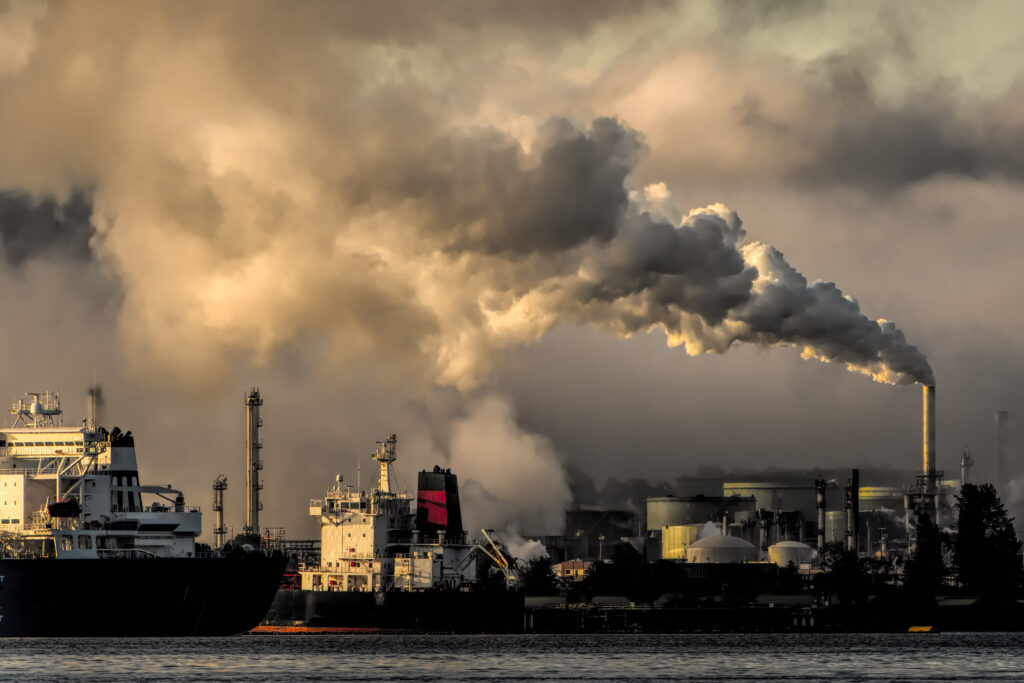
You may not think about it often, but the air we breathe greatly affects our overall well-being. The quality of the air is measured by the amount of dust, unhealthy gases, poisonous chemicals, and other pollutants present in the air. The American Lung Association notes that over 137 million Americans, which is 40% of the population, live in areas with unacceptable levels of pollutants in the air.
Poor air quality can lead to a range of health problems, and it's important to understand the risks and take steps to protect ourselves. In this article, we will look at the basics of air pollution and how you can protect against it. So let’s get started.
Impact on Your Health
We all know that breathing in dirty air can't be good for us, but just how bad is it really? Of course, you can check what the air quality will be at Tomorrow.io, a hyper local weather monitoring app, before stepping out. With Tomorrow.io, you get granular data about the air quality in your area, including the levels of different pollutants and pollen.
But having access to all that data isn’t enough. You still need to know what it truly means for your health. Poor air quality can have a significant impact on our health, both in the short and long term.
One of the most obvious effects of poor air quality is on our respiratory health. Particles in the air can irritate our lungs, causing symptoms like coughing, wheezing, and shortness of breath. This can be especially dangerous for people with pre-existing respiratory problems like asthma or COPD.
Poor air quality can also have a negative impact on our cardiovascular health. The tiny particles in the air can penetrate deep into our bloodstream and increase the risk of heart disease, stroke, and other cardiovascular problems.
And it's not just our respiratory and cardiovascular systems that are at risk. Columbia University notes pollutants can accumulate inside our immune cells over time and weaken their ability to fight pathogens. With a weakening immune system comes an increased risk of suffering from any disease, which can lead to premature deaths in the worst cases.
Populations Most At Risk
While poor air quality can affect anyone, some populations are more susceptible to its harmful effects. Children and infants have developing lungs and immune systems that make them more vulnerable. Elderly individuals are also more susceptible. Individuals with pre-existing respiratory conditions such as asthma or COPD are at greater risk of experiencing worsening symptoms.
Unfortunately, the class divide is also visible when it comes to the effects of air pollution. According to World Health Organization (WHO), 89% of premature deaths caused by air pollution happen in low to middle-income countries. These countries generally use less environment-friendly production methods and also find it difficult to clean up the air in other ways.
Sources of Poor Air Quality
Poor air quality is caused by a variety of factors, both natural and human-made. Some of the most common sources of air pollution include
- Industrial emissions: Factories, power plants, and other industrial operations can release harmful pollutants into the air.
- Transportation: Cars, trucks, and other vehicles emit pollutants like carbon dioxide and particulate matter. The EPA says emission by vehicles is responsible for 27% of total greenhouse gas emission in the US.
- Agricultural practices: Livestock operations, pesticide use, and other agricultural activities can also contribute to poor air quality.
- Natural sources: Dust storms, wildfires, and other natural events can also impact air quality, particularly in rural areas.
It's important to understand the sources of poor air quality so that we can work together to reduce our impact on the environment and improve the air we breathe. Whether it's reducing our carbon footprint, advocating for cleaner industry practices, or supporting sustainable agriculture and farming, there are many steps we can take to make a difference.
How to Protect Yourself
Now that we understand the harmful effects of poor air quality, let's talk about what we can do to protect ourselves and our loved ones. Here are a few practical steps you can take
- Stay informed: Check local air quality reports regularly to stay up-to-date on conditions in your area.
- Limit exposure: Avoid spending time in areas with high levels of pollution, such as near busy roads or in heavy industrial areas.
- Use protective equipment: If you have to be in an area with poor air quality, consider wearing a mask to reduce your exposure to harmful particles.
- Consider indoor air quality: Keep the air in your home and workplace clean by using air purifiers and avoiding sources of indoor pollution like tobacco smoke.
- Advocate for change: Join forces with others in your community to raise awareness about air quality issues and advocate for policies that will improve conditions in your area.
By taking these steps, you can help protect yourself and your loved ones from the negative effects of poor air quality. Let's work together to make our air safer to breathe.
Air quality is an important factor that affects the health and well-being of people. Understanding the sources of poor air quality and taking steps to protect ourselves and our loved ones is crucial. By monitoring air quality, advocating for change, and making smart choices, we can work together to improve the air we breathe.
